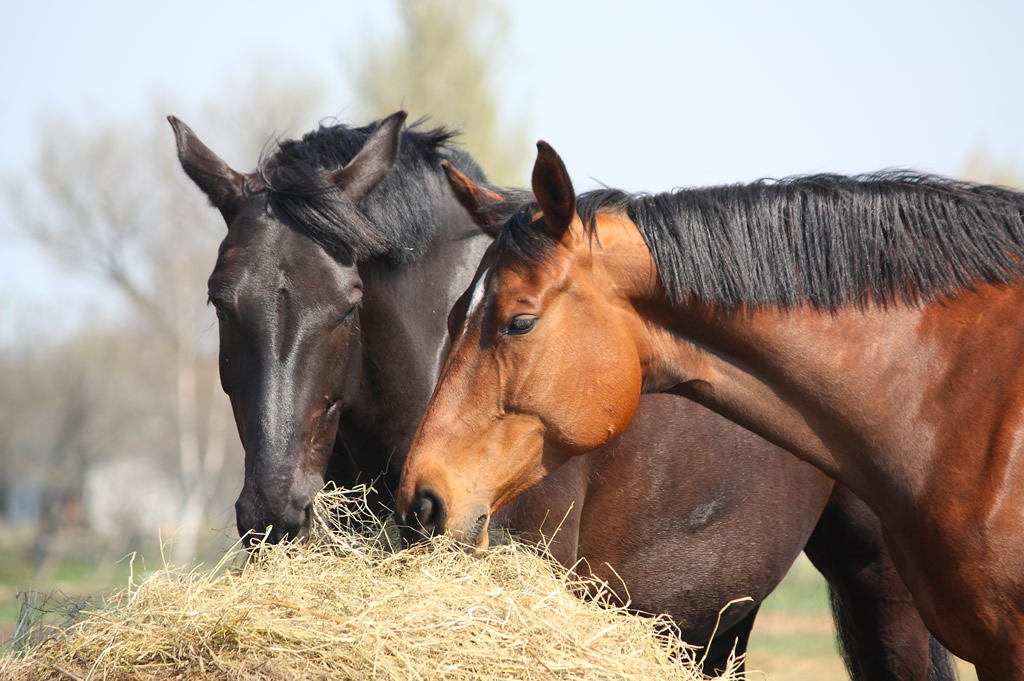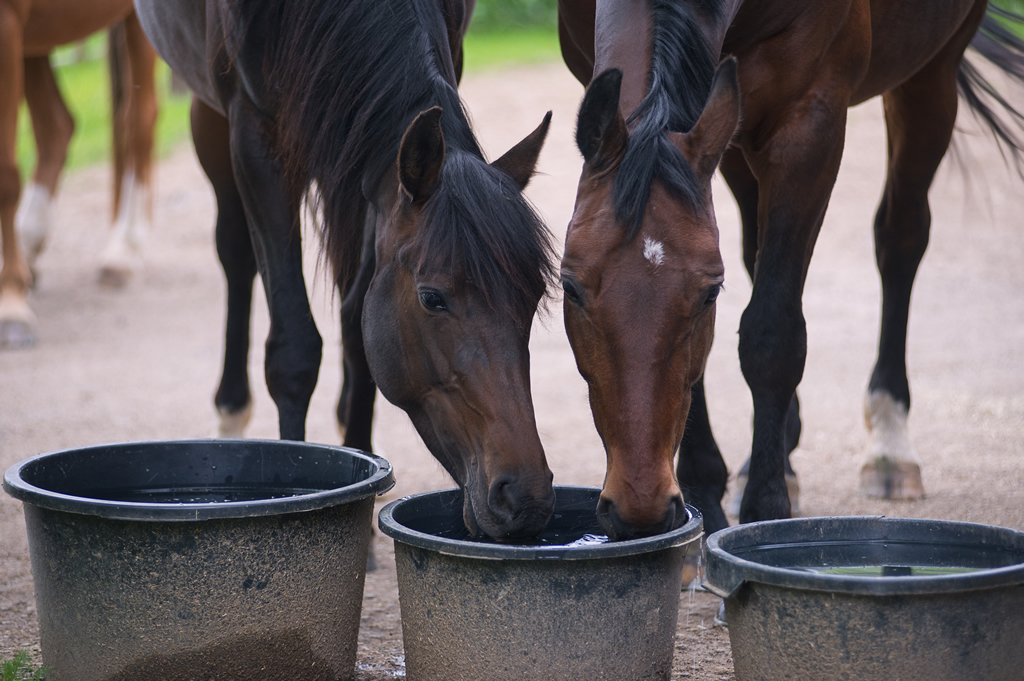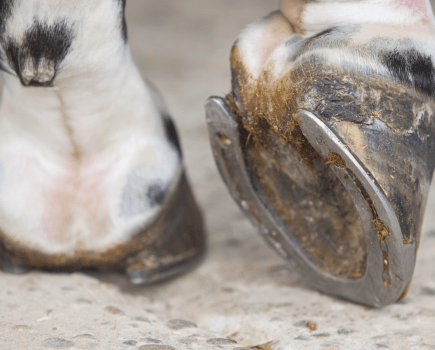*PROMOTION*
Did you know that electrolytes are lost daily through a horse’s urine, faeces and breath — and an electrolytes deficiency often goes unnoticed in horses?
A horse health expert at The Insurance Emporium explains the importance of electrolytes and shares some top tips for ensuring your horse doesn’t suffer from a deficiency.
What are electrolytes?
Electrolytes are incredibly important when maintaining a healthy horse and are important for most bodily functions. They’re vital in maintaining osmotic pressure, fluid balance, and nerve and muscle activity.
 There are five main electrolytes required by horses:
There are five main electrolytes required by horses:
1 Sodium
2 Chloride
3 Potassium
4 Magnesium
5 Calcium
How are electrolytes lost?
Electrolytes are lost daily through a horse’s urine, faeces and breath. The one electrolyte most likely to be deficient is sodium, or salt. Studies show that horses do not regulate their salt consumption freely when provided with salt licks or blocks.
What are the symptoms of electrolyte deficiency?
Electrolyte deficiency often goes unrecognised in horses but can cause poor performance or digestive disturbance.
These deficiencies can also cause a horse to be prone to high muscle enzymes, reduced sweating, tying up or slow recovery after exercise.
A horse with electrolyte deficiency may be lethargic, depressed, have a dull coat, sunken eyes and/or pass dark urine.
Can it cause dehydration?
 Excessive loss of water and electrolytes can lead to dehydration, which could be fatal for your horse. Look out for the following symptoms in a dehydrated horse:
Excessive loss of water and electrolytes can lead to dehydration, which could be fatal for your horse. Look out for the following symptoms in a dehydrated horse:
- Dull expression
- Glazed-over eyes
- Dry mucous membrane
- Dry gums
Can I offer electrolytes as a supplement?
Horses may need to have their diets supplemented with electrolytes in order to remain healthy.
The level of supplementation should also be adjusted in line with the sweat loss of the horse, which should assist in recovery and keep your horse healthy and hydrated.
Consider the intensity of your horse’s workload, their diet and other environmental factors such as heat and humidity to establish what supplementation is required. If you’re unsure, always consult your vet first.
How are electrolytes administered?
Electrolytes come in the form of isotonic solutions and can be mixed in with feeds or administered in the form of a paste.
There is a variety of supplements available on the market or you could prepare a supplement at home.
Consult your vet…
By reading this, hopefully you’ve gained some insight into the importance of electrolytes for your horse. If you’re planning to make any changes to your horse’s diet, The Insurance Emporium always recommends consulting your vet first.
Save 30% on horse insurance!
 If you’re a horse owner, you might want to think about taking out insurance for your horse. At The Insurance Emporium, our Defaqto 5 Star Rated Horse Insurance includes cover for Death, Theft Or Straying as standard. You can then customise your cover with our range of optional benefits. You could even receive up to 30% discount* on your policy! Head over to theinsuranceemporium.co.uk to see if we have the policy for you.
If you’re a horse owner, you might want to think about taking out insurance for your horse. At The Insurance Emporium, our Defaqto 5 Star Rated Horse Insurance includes cover for Death, Theft Or Straying as standard. You can then customise your cover with our range of optional benefits. You could even receive up to 30% discount* on your policy! Head over to theinsuranceemporium.co.uk to see if we have the policy for you.
* The 30% discount is made up of 20% Introductory Discount plus 10% Multi-horse Discount (if appropriate). The Introductory Discount is available for the first 12 premium payments on lunar monthly and calendar monthly policies, or one premium payment on annual policies.









